Question Time: The research helping you travel across town
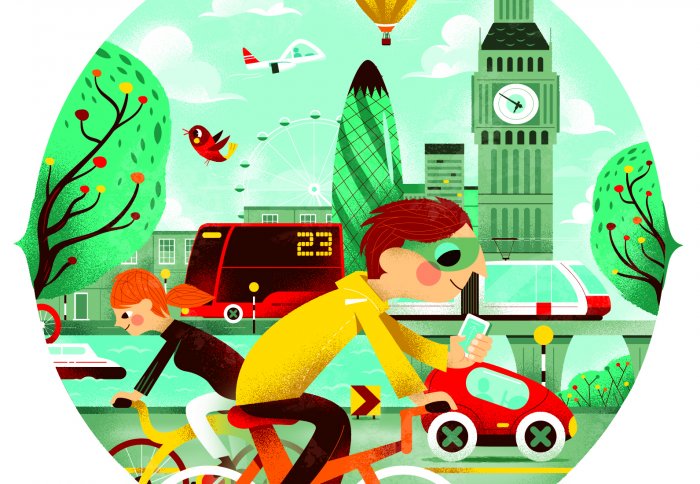
How is research making it easier to get around London?
Professor John Polak is Head of the Centre for Transport studies in the Department of Civil and Environmental Engineering
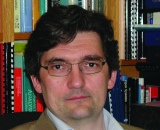
Managing transport networks and providing travellers with information have traditionally been seen as separate activities. But finding ways to bring them together will help meet new challenges in transport policy, and help people better manage transport systems and personal travel.
One way is to exploit the ever increasing amounts and diversity of data available from GPS, CCTV and number plate recognition technology from London’s transport network. One of our current research projects – FREEFLOW – does just this, and has recently been successfully trialled in and around Hyde Park Corner, one of the busiest traffic hotspots in central London.
More data gives us a fuller picture, more accurate predictions, and better ways of using those predictions. When FREEFLOW research reaches a commercial stage, it could help us manage events such as the Olympics, which will place significant new demands on both people and transport systems in London.
Professor Stephen Glaister is Professor Emeritus of Transport and Infrastructure, Centre for Transport Studies, and Director of the RAC Foundation.
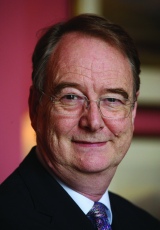
One of the biggest transport issues for London is to find a way of providing for the predicted increase in population, which is expected to lead to an increase in daily trips from 24 to 27 million in the next 20 years. I research the economics of transport, especially the costs and benefits of urban public transport systems, and the benchmarking of transport systems across the world.
By international standards, public transport in London measures up well: we are making improvements to existing infrastructure, such as the Tube; and new projects, such as Crossrail for new rail connections across London, are also progressing. It is the roads that require urgent attention, as private vehicles are used more than public transport for personal travel in London.
Priorities include ways of improving operational efficiency, handling increased congestion, and making environmental improvements and increasing funding. We need to make more impact than existing user charging and cycling initiatives currently achieve.
Dr David Howey (PhD Electrical and Electronic Engineering 2009) is a Research Associate in the Department of Mechanical Engineering
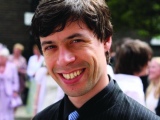
Road transport is responsible for high levels of carbon dioxide, particulate and other emissions. My research aims to address this by improving the conversion and storage of energy in the powertrain – the systems, such as batteries and motors, that produce and deliver power to move hybrid or electric vehicles.
More efficient vehicles, such as hybrids, are essential if we are to fulfil our commitment to reducing greenhouse gases and comply with the EU Air Quality Framework Directive. The next few years will see a gradual electrification of the powertrain, especially for urban vehicles making short, stop–start journeys.
Reducing emissions sometimes comes at the expense of a more energy-intensive production process, so we need to find the best balance. My hope is that we can also make things less confusing for people looking to buy new vehicles, so that the current industry investment in this area can be matched by consumer confidence in the technology and affordable pricing.
Dr Ralph Clague (Physics 1995, MSc 1996, PhD 2008) is Power Systems Manager at Gordon Murray Design and an Honorary Research Fellow at Imperial
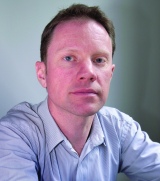
Sustainable vehicle design is moving from being an academic problem
to becoming an issue for engineering. I am lucky enough to work with a foot in each camp. My current preoccupation is to find a way of doing something radically different with personal transport in cities.
How can we engineer and design private vehicles to incorporate the latest technologies, maintain safety, and cut production and running costs? We are looking to new technologies to develop a lighter city car that gives off lower emissions. The design will make it efficient for the school run and the weekly shop, as well as an occasional trip to the airport.
These new priorities are also important for the next generation of design engineers. Imperial students will always love the concept of fast vehicles. But these days they are less inspired by petrol engines, and more interested in finding ways of matching speed with sustainability.
Illustration: Christian Lindemann
This article first appeared in Imperial Magazine, Issue 36. You can view and download a whole copy of the magazine, from www.imperial.ac.uk/imperialmagazine.
Article text (excluding photos or graphics) © Imperial College London.
Photos and graphics subject to third party copyright used with permission or © Imperial College London.
Reporter
Natasha Martineau
Enterprise